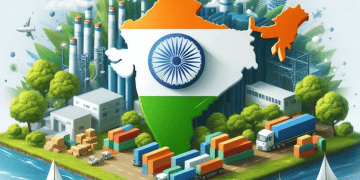In a move to manage logistical challenges, South Africa’s decision to prioritize imports is generating repercussions for its export sector, which is already under significant strain. The prioritization strategy, aimed at alleviating supply chain bottlenecks, has inadvertently intensified pressures on outbound shipments.
The prioritization measures, implemented amidst global supply chain disruptions, seek to streamline the influx of goods into the country, ensuring critical imports such as essential commodities and industrial inputs receive precedence. However, this strategic shift has placed exporters in a precarious position, exacerbating delays and logistical complexities.
Exporters, particularly those reliant on timely shipments to meet international commitments, are grappling with extended lead times and heightened operational costs. The imbalance created by prioritizing imports has underscored the need for nuanced logistical strategies that can effectively manage both inbound and outbound flows without compromising sectoral interests.
Industry analysts suggest that while prioritizing imports is crucial for sustaining domestic operations, there is a pressing need for policymakers to devise comprehensive solutions that mitigate the adverse impacts on exports. Strategies focusing on enhancing export facilitation, reducing bureaucratic hurdles, and optimizing transport networks are imperative to restore equilibrium in the trade ecosystem.
The ramifications of these measures are felt across various sectors, from agriculture to manufacturing, where export-dependent businesses are navigating unprecedented challenges. As stakeholders adapt to the evolving dynamics, maintaining a delicate balance between import prioritization and export resilience remains a pivotal consideration for South Africa’s economic stability.
This development underscores the intricate interplay between global supply chain dynamics and national economic strategies, highlighting the imperative for adaptive policies that foster resilience and sustainability across all facets of trade and logistics.















